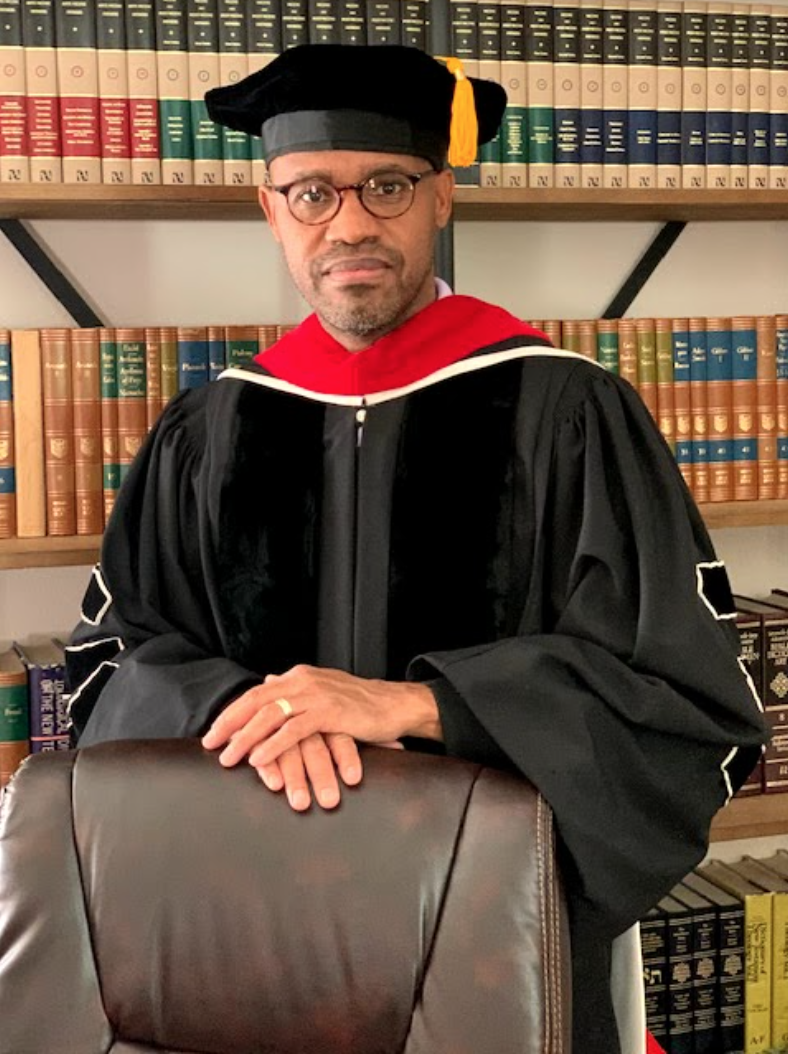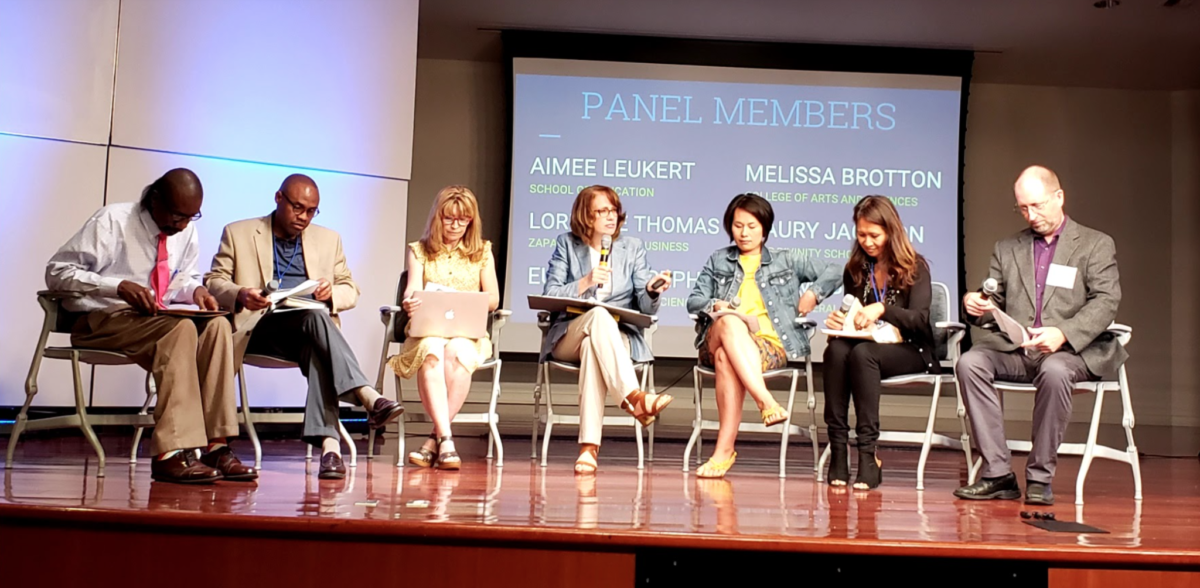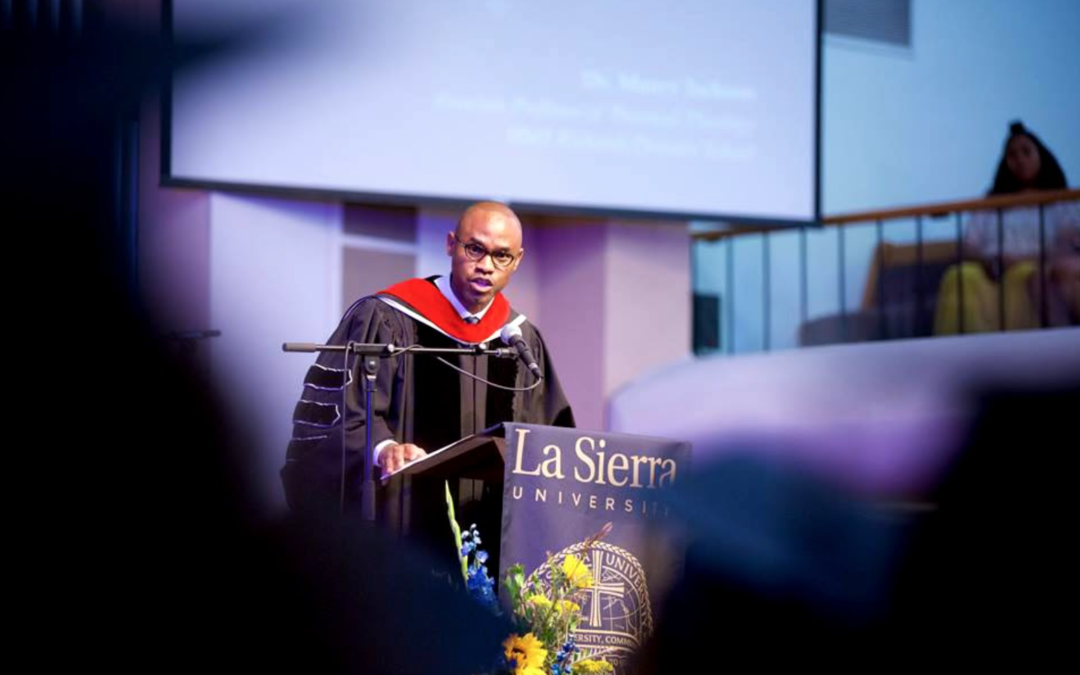
Loren Klim (Class of 2022, Philosophy) recently met via Zoom with honors faculty member Dr. Maury Jackson, associate Professor of Practical Theology, as well as the coordinator for Philosophical Studies Program at La Sierra University.
What is your educational background?
In undergrad, I focused on religion. There used to be only two programs: one was theology (biblical languages), the other religion. I started out with theology. My biblical languages professor was fluent in seven languages, so he was gifted, but he could not teach, because he was so gifted he could not understand why a guy like myself could not pick it up. So I quickly switched majors and finished my undergrad in religion. Of course, when I went to Fuller Theological Seminary, I encountered languages again. At Fuller, my professor who taught me Greek told me that I would do well in the class because he had flunked the class three times as a student, and if there was anyone who would know how to teach it, it was him. And he was right. In eight weeks, I was reading from the New Testament, and shocked myself. I then went on to Andrews University and completed a masters of divinity.
From there, I went to UCLA and completed an MA in Philosophy. While I was there in Los Angeles, I started teaching philosophy courses at Park University as an adjunct at their satellite campus. I transferred and started teaching at Antelope Valley College as an adjunct philosophy professor. Then I began working on my doctorate in ministry at Claremont School of Theology, where I did an interdisciplinary program in theology, ethics, and cultures.
What are your interests and hobbies outside of academics?
So, I like to listen to jazz music, to go to concerts with jazz artists. I love Miles Davis, I love his music. I like John Coltrane, guys from the bebop era of jazz that everyone loves. I love to put them on and sit and listen and relax. I also like to listen to symphonies, for example at the Walt Disney Concert Music Hall.
What class do you teach for the Honors Program?
I teach Religion and the Future (UHNR 414). I always like to use topics that are hot-button topics in the world today and that seem like they will be there for a while: issues of classism, militarism, sexism, racism, science and religion, as well as postmodern thought and religion. In the past, I had the students read a book a week in the class. It is difficult, but these students are bright and I know they are able to do it.
The class is framed by pluralism. We start with Mortimer Adler’s book Truth in Religion: The Plurality of Religions and the Unity of Truth, and then we move to The Rainbow of Faiths: Critical Dialogues on Religious Pluralism by John Hick. Those are the two books the whole class works through together. Then they break into panels for the remaining books. This past year, I realized that we would not keep them engaged given all the distractions, so I am trying things which I will build on for the class this fall. For example, I introduced the book, Voices from the Margin: Interpreting the Bible in the Third World, allowing students to engage with different kinds of strategies and approaches when it comes to religion, such as Marxist and postcolonial thought. We stayed engaged and the class proved to be highly successful.
For this Fall, I will continue this experiment, framing the class with religious pluralism on the one hand, but then allowing the voices of different scholars of religion to interpret the text in the context of their world. I want to see how it sparks the conversation that I want us to have in class.
What advice do you have for students as they continue in academics?
In academics, I say be interdisciplinary. We used to have the best and the brightest men and women who could have done anything in the world with their intellect, but they chose to be involved in religious scholarship. Nowadays, some of the best minds never recognize the value of the intellectual enrichment that comes through the study of the humanities, including religion, theology, and philosophy. In fact, one of my cousins who is an orthopedic surgeon told me that he now realizes how much bigger the world is compared to medicine alone, given the rich world of thought and world of depth in literature. So I would encourage students to be interdisciplinary. If students are thinking about a terminal degree in the natural sciences, consider taking a year or two to complete a masters degree in the humanities or the arts. If students are considering law, look into getting involved in a graduate-level interdisciplinary training program as well. That, then, will inspire students for their whole life, namely, to be better citizens than the generations before, who were often siloed in their education but quick to opine about things about which they knew nothing.
What do you think is important when considering the future of education?

Education is at an important crossroads. It is not as if schooling equals education. In fact, many go to school for certification, not education. Many so-called studies on whether college is worth it or not fail to notice that wisdom and dialogue cannot be measured in financial terms. That is the question: is the future of education about vocational discernment and engagement with wisdom traditions in the ongoing search for truth, or about mere financial profit and technocratic knowledge. The future of education is about discerning and contextualizing its own role, otherwise it is certainly not worth the tuition fees.
In an honors program, it is exactly that. It is about being honorable enough to not merely memorize and repeat, but to deepen understanding, to build skills for critical discourse and honest conversation. Meaning that we bring our entire person into the learning process so that we come out not only with head-knowledge, but as a person who has grown. All too often, learning is shaped by hasty over-simplifications and sound-bites, and those, for example, who throw numbers around as if they self-explain and interpret reality outside a larger context. This fact shows the importance of having a place where students can expose the complexity of the issues by discussing in humility and reading through the texts in class.

